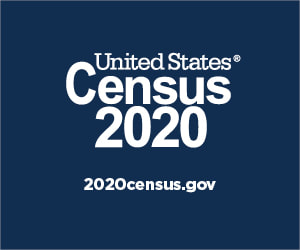|
|
New Study Examines Barriers, Attitudes and Motivators Toward Participating in the Upcoming 2020 Census
The U.S. Census Bureau released results today from the 2020 Census Barriers, Attitudes and Motivators Study (CBAMS). The national survey and series of focus groups were designed to better understand the nation’s attitudes toward the 2020 Census, potential barriers that may inhibit participation, and possible motivators of responding. The CBAMS research is...
... the foundation for building an Integrated Partnership and Communications campaign for the 2020 Census.
“Every part of the 2020 Census is grounded in research,” Census Bureau Director Steven Dillingham said. “An accurate and complete census relies on U.S. households responding to the 2020 Census online, by phone or by mail, and the communications campaign is key to achieving that.” This extensive research expands similar work done ahead of the last census and shows how to reach all populations, including segments of the population that are historically hard to count, and which types of messages may be most effective. That work is then reinforced by the testing of the advertising creative to be used throughout the campaign. Today’s release includes two reports: “2020 Census Barriers, Attitudes, and Motivators Study (CBAMS) Final Survey Report” and “2020 Census Barriers, Attitudes, and Motivators Study (CBAMS) Final Focus Group Report.” Final Survey Report The 2020 CBAMS survey reached a nationally representative sample of 50,000 households in early 2018, with nearly 17,500 responses (about a 35.0 percent response rate) to determine who intends to respond to the census and what attitudes, barriers and motivators exist about the 2020 Census. This is considered a well above average sample size and response rate than the industry standard for communications campaign research. Highlights:
Final Focus Group Report Forty-two focus groups, held across 14 cities, explored potential motivators and barriers to response as well as attitudes toward the census. The focus groups were conducted among all characteristics of hard-to-count populations, including racial and ethnic minorities, people who speak languages other than English, those with low internet proficiency, young people who move frequently or have plans to move soon, rural residents, and populations at risk of low response. In addition, the Census Bureau was able to make some observations about the inclusion of a citizenship question on the census form to 34 of the 42 focus groups because the question announcement happened while the research was being fielded. Highlights:
###
0 Comments
Leave a Reply. |
Archives
February 2024
|
|
Copyright © 2016-2024
Athens-Limestone County Tourism Association 100 N. Beaty Street Athens, Alabama 35611 (256) 232-5411 |
